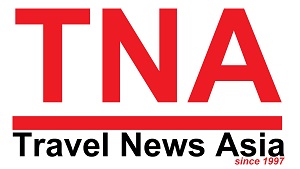|
With so much confusion, misinformation and
different strategies surrounding the current 2019-nCoV outbreak,
it is a very worrying time for the global travel and tourism
industry and the millions of people around the world who rely on
it for their livelihoods.
Commenting on the current developments regarding
the 2019-nCoV outbreak, Mr.
Andrew Herdman, Director General of the Association of Asia
Pacific Airlines (AAPA) said, �The safety and well-being of the
travelling public are always uppermost in our minds. Asia Pacific
carriers are well-prepared to handle health crises including those
involving communicable diseases, and are taking every possible
measure to minimise the risk of the novel coronavirus being spread
more widely across frontiers. The air transport industry is
strictly following established guidelines developed by the
International Civil Aviation Organisation (ICAO), in consultation
with the World Health Organisation (WHO), the International Air
Transport Association (IATA) and Airports Council International
(ACI), covering the management of public health events.�

On the important role played by the WHO in
responding to the current situation, Mr. Herdman said, �We very
much appreciate the leadership being shown by the WHO in
coordinating the global response to the current outbreak. It is
worth noting that the WHO has to date not recommended any
restriction of international travel or trade based on the current
information. It would, however, be prudent for people who are ill
to delay international travel and for people developing symptoms
following international travel to seek medical attention.�
Noting that a number of governments have
nevertheless introduced various measures including travel
advisories, border entry restrictions and quarantine requirements,
Mr. Herdman said, �Regrettably, some of these measures, whilst
well-intentioned, seem to lack any proper public health
justification, whilst causing significant and widespread
disruption to travel and trade activities across the world.
Arbitrary restrictions and blanket travel bans are inconsistent
with international health regulations, and result in
unnecessary inconvenience and added uncertainty amongst members of
the public. Governments in Asia and elsewhere must strengthen
dialogue and work together with WHO, ICAO, and other stakeholders
to develop a more comprehensive strategy and globally co-ordinated
set of policy measures in response to the current outbreak.�
Regarding the effect on travel and tourism, Mr.
Herdman said, �Understandably, growing public concern about the
outbreak has already had a very significant impact on demand for
air travel across the region, forcing airlines to cut back or
suspend services on affected routes. The risk of crews being
subjected to arbitrary quarantine measures has resulted in further
operational disruption, regardless of any proper risk assessment.
Airlines are generally waiving cancellation fees or providing
refunds to affected passengers on these routes. Rather than impose
arbitrary travel bans, we believe that passengers can be trusted
to make informed decisions, provided that there is open and
transparent communication of accurate information.�
�At this critical juncture, improved co-operation
and co-ordination by international organisations, national
governments, health authorities and everybody involved in
combating this global health emergency are of overriding
importance. Asia Pacific airlines are fully committed to
working closely with the relevant governments and national health
authorities to support such efforts in the wider public interest.�
�AAPA is closely tracking this rapidly evolving
situation, and will continue to work closely with other industry
stakeholders in addressing further developments.�
See latest
Travel News,
Interviews,
Podcasts
and other
news regarding:
AAPA,
nCoV.
|
Headlines: |
|
|
